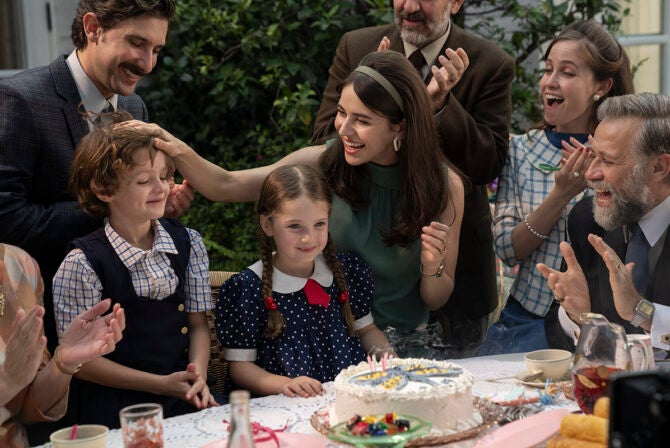“[The father] has dreamed about [the son] every night since the event, dreams of pervasive sadness rather than fear; he had told me that he could not be afraid of his fate as [the son’s] father, even of being murdered by his son. Recently, though, he had the worst nightmare of his life. He was walking past a door; a figure in the door began shaking it violently. [The father] could sense hatred, anger, ‘the worst possible evilness,’ and he could see upraised hands. He realized it was [his son]. ‘What surprised me is that I was scared as shit,’ he recounted. ‘I couldn’t understand what was happening to me. And then I realized that I was experiencing it from the perspective of his victims.'”
These sentences would make any person’s blood run cold. Andrew Solomon’s recent piece in The New Yorker about the psychological anatomy of Sandy Hook mass murderer Adam Lanza is a compelling, horrifying read. Well aware that his son had psychological issues, Adam’s father Peter walks Solomon through various meetings with psychiatrists and many, many attempts to defuse the ticking bomb of Adam’s profound unhappiness, until it was too late and Adam murdered his mother and the children and staffers of Sandy Hook Elementary School in Newtown, Connecticut.
It’s a particularly disturbing read, I’d argue, for a parent. Much has been made of collective parental sorrow over the senseless murders of the Sandy Hook children–but what about the terrifying fear that you could be the parent of a child who could have done something this horrible? In the piece, Peter says he wishes Adam had never been born: a truly awful thing for a parent to say. And yet, we can understand–because surely we would rather die than have unwittingly unleashed someone who would cause sorrow of this scale on the world.
We look for answers. Scientists, Solomon reports, are even currently analyzing Adam Lanza’s DNA to discern what makes him different from all of us. Lanza has been labeled a sociopath, a psychopath–yet all these labels, I’d argue, do less good than harm. We shouldn’t focus on what made Lanza or his parents different from us–but rather, take a long and hard look at the ways in which we are the same.
Is there a “lesson” to be taken from the mass murder of beautiful, innocent children? In a horrible way, yes, there is: the lesson that we, as parents, are the first line of defense against such horrors. The Lanzas took their son to various specialists, homeschooled him to spare him social difficulty–but in return, one of them was murdered by him. The story elaborates on the ways in which Adam’s mother and father responded to his difficulties. We can’t and shouldn’t lay blame for Adam Lanza’s actions at the feet of his parents–that is not my point. This story drives home that as parents, we have to acknowledge that all parents bear the world a tremendous, awe-inspiring, awful responsibility that is potentially terrifying in its magnitude.
Behind all the blogposts and discussions of how much TV our preschoolers should watch, how long to breastfeed and how to handle sibling rivalry is a deep, profound and real fear: what if our children turn out horribly, horribly wrong? What if our children, rather than repairing the world, opt, perhaps even deliberately, to break it, whether out of their own brokenness or a pain that seems incomprehensible?
If there were a book entitled “How Not To Raise A Mass Murderer” with proven results, surely we’d all read it, especially after a tragedy like Newtown. There are books galore, however, that teach us how to raise a good kid, a mensch, a star athlete, a stellar student. But all of these are simply positive-spin attempts to avoid the greatest fear of parenting: raising a child who does active damage to the people and world around him or her.
There is no one answer, no easy pill to swallow. Instead, the only hope is for each of us to take each day and use it wisely, to learn who our children are, and to teach them who they can and should become. We need to take the time to not only acknowledge our children’s strengths, but also to try as hard as we can to see their weaknesses–and our own–clearly.
This isn’t easy. In fact, it’s almost impossible: it is time-consuming, exhausting work, and results are by no means guaranteed. But we owe it to our children, ourselves, and the world to try our hardest. The stakes are far too high.
Like this post? Get the best of Kveller delivered straight to your inbox.







